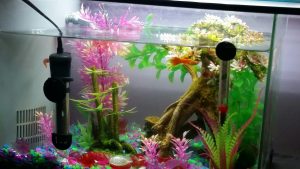 As regular readers of the blog know, we got a small fish tank over Christmas. Fish were supposed to be easy pets. How hard could they be? Throw some water in a tank, plop in some fish, feed them, they’re good. Very few things in life are as easy as they appear. If we had done a little more research, we would have been more prepared for what happened next.
As regular readers of the blog know, we got a small fish tank over Christmas. Fish were supposed to be easy pets. How hard could they be? Throw some water in a tank, plop in some fish, feed them, they’re good. Very few things in life are as easy as they appear. If we had done a little more research, we would have been more prepared for what happened next.
We’ve had a total of 5 fish, but are down to 3. We lost one (quite literally lost him) the first night, while the second leaped from the tank about a week later and never recovered. How they got out of the tank through a skinny opening in the dead of night we don’t know. But we have fixed this issue with a new cover. A little research may have saved their lives, but who knows?
What more research WOULD have prepared us for is the difficulty of maintaining the proper chemical balance in our tank. We let the water sit and percolate for a week before adding the first 2 fish. Turns out we should have let it “cycle” for at least a month, maybe more, before adding the fish. Now we are trying to control the ammonia and nitrite cycle while fish are in the tank, which is very stressful, because a spike in either ammonia or nitrite can kill the fish in a mass extinction event (we very nearly had one a week ago).
So here we are with fish and struggling to keep them alive through this natural aquarium cycling process, when a little more research would have saved us the headache. And the same can happen when writing. A little research in the beginning can keep your manuscript from going off the rails.
Some people do extensive research before writing. Some research as they go along. I am in the middle. I do broad-stroke research before I write, and fill in the details as I need them. But by doing basic research first, I know the broad restrictions I need to work within. This saves me from writing the whole book, then finding out I had a fundamental flaw which now requires me to rewrite an entire plotline. So a little research can save a lot of angst later on.
The other thing about the aquarium is that the ammonia and nitrite need to be kept at 0 ppm, or you end up with stressed and perhaps dead fish. Bacteria are supposed to eat the ammonia and the nitrite, keeping the whole thing in balance. But little things can throw the cycle off and suddenly your water is testing in the danger zone.
The writing life is like that, too—a delicate balance. Writers juggle writing and daily life, often including family and a day job. It’s not easy to keep the water balanced right. One little thing can send one part of your life spiraling into the danger zone. All we can do is keep testing the water and try to head off any problems we see. One way to do that in an aquarium is partial water changes. We can do that in life, too. If one issue is causing undue stress, can we change it up, change it out? Sometimes a small change can make a huge difference.
Research will save you headaches. Balance will save you heartaches. And fish…well, fish are cool when they’re not jumping out of the tank in the dead of night.
When do you research your manuscript? How do you maintain a healthy balance in your life?
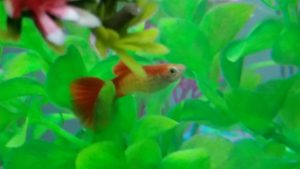
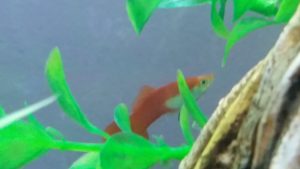
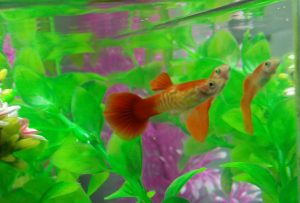
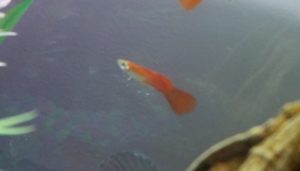
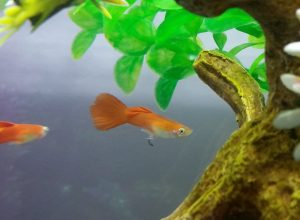
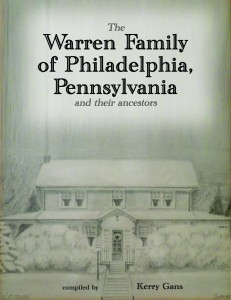
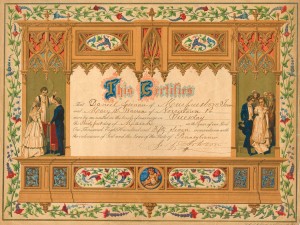
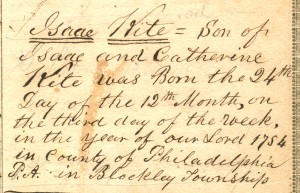


Do What You Can—CoronaLife Day 348
Everyone I know is hitting the pandemic wall. As we approach a year of CoronaLife, many of us have exhausted our reserves of patience, grace, and stay-insidedness. I, for one, have actually felt worse anxiety and stress since the vaccines came out, a desperate feeling of “so near and yet so far.” Like starving on the street and seeing food on the other side of a shop window.
So seeing as I—and many of us—am mentally and emotionally drained, it is hardly surprising that my creativity has crashed and burned. As much as I want to get to writing, I just have nothing in the tank nor the quiet space needed to go there. I am far from alone in this—many, many writers have commented on the same phenomenon. They have the time to write, but just…can’t.
Not being able to write drives me to berate myself often. The lack of productivity makes me feel not like myself, further unsettling me in this time of upheaval. So what’s a writer to do?
Do what you can.
For me, I decided to turn to non-fiction and my favorite hobby, genealogy. Many years ago, I published a book on my father’s side of the family. I began one for my mother, but never seemed to complete it. This month, I decided to try and get to THE END.
I have revamped several chapters, including updated information newly discovered since last time I looked at it, including indicating which ancestral couples have DNA matches to them. I am now wading through the rest of the chapters, finding them in various states of disarray. Some are written but the source citations are missing, some are partly written, and one hasn’t even been started yet.
Years ago I made a hasty mistake that has come back to haunt me (and would cause all of my college professors to cry). I failed to source my notes. You see, my mother’s line leads back to royalty, so a number of her families have a substantial amount of scholarly research on them. I read some of the works, jotted down notes in my genealogy program, made note of the book’s citation—and didn’t cite page numbers. Even worse, I didn’t cite which pieces of information came from which book, and just had a long prose piece on each person that mixed all the info together.
I have placed orders with the Interlibrary Loan people (who got these books for me before), and hopefully as they come in I can scan them quickly and reunite facts with sources. With my luck, all the books will arrive at the same time, and then I will have only 2 weeks to go through 6 books. I also ordered 2 books via ILL that were completely new and I will have to read in full to write the chapter that I haven’t even started yet.
So far, my plan has been fruitful. I am making progress and feeling productive. A little bit like my pre-pandemic self.
So for all of you, writers or not, who are struggling to feel more like yourself, know that aspiring to pre-pandemic productivity and goals right now may be making you feel worse rather than better. And if it is—as it was with me—take my advice and reset your goal:
Just do what you can.